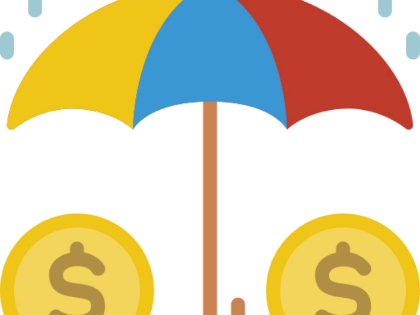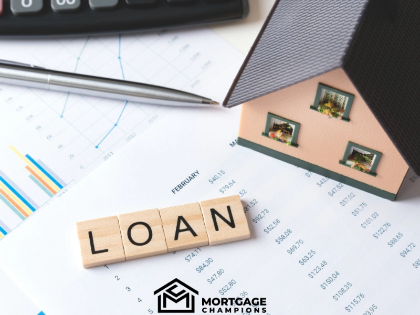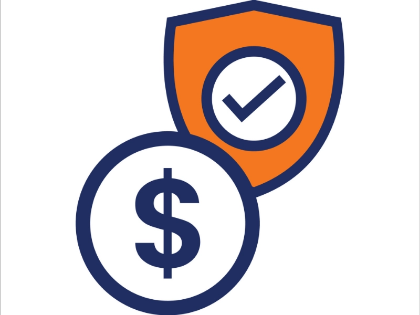Mortgage Relief Programs: What Are Homeowners Eligible for?
In order to alleviate financial stress and preserve homeownership, mortgage relief programs modify the terms of a homeowner's mortgage. This may entail loan modification, interest rate reduction, or forbearance to prevent foreclosure. Get in touch with your mortgage servicer—the business you pay your monthly installments to—as soon as you can to start looking into mortgage relief possibilities. Your mortgage statement contains their phone number.
Remortgaging

Patience
 When faced with financial difficulties, homeowners can temporarily stop or lower their mortgage payments through mortgage forbearance. If the homeowner is able to resume regular payments once the forbearance period ends, it can help prevent foreclosure proceedings.
Homeowners who have government-backed loans (FHA, VA, and USDA) or whose mortgages are held by federally-sponsored companies like Freddie Mac and Fannie Mae may be eligible for mortgage forbearance. It is mandatory for mortgage servicers to discuss forbearance options with these kinds of homeowners.
Your lender will work with you to create a plan to repay the amount you missed when the forbearance period ends. This may involve extending the loan term or adding a portion of the outstanding balance to each monthly mortgage payment. They will also talk about additional choices, such as refinancing your mortgage or making a lump-sum payment.
Forbearing on your mortgage won't usually have a negative effect on your credit score. But it can have a negative impact if you miss payments without getting in touch with your mortgage provider and arranging forbearance terms.
When faced with financial difficulties, homeowners can temporarily stop or lower their mortgage payments through mortgage forbearance. If the homeowner is able to resume regular payments once the forbearance period ends, it can help prevent foreclosure proceedings.
Homeowners who have government-backed loans (FHA, VA, and USDA) or whose mortgages are held by federally-sponsored companies like Freddie Mac and Fannie Mae may be eligible for mortgage forbearance. It is mandatory for mortgage servicers to discuss forbearance options with these kinds of homeowners.
Your lender will work with you to create a plan to repay the amount you missed when the forbearance period ends. This may involve extending the loan term or adding a portion of the outstanding balance to each monthly mortgage payment. They will also talk about additional choices, such as refinancing your mortgage or making a lump-sum payment.
Forbearing on your mortgage won't usually have a negative effect on your credit score. But it can have a negative impact if you miss payments without getting in touch with your mortgage provider and arranging forbearance terms.
Loan Adjustment
 Mortgage loan modification, as opposed to forbearance, is a long-term fix that modifies the conditions of your initial mortgage. You can achieve this by reducing your interest rate, altering the general loan structure, or doing both. Loan modifications are often only available to borrowers who have run out of alternatives for forbearance or who are unable to qualify for a refinance because of continuing financial hardship. Discuss your possibilities for mortgage relief with your lender or a HUD-approved housing counselor if you are worried about your capacity to make your monthly mortgage payments.
The sending of a "hardship letter" usually initiates the loan modification application procedure. It describes your present financial difficulties and how paying your mortgage is being affected by them. Your mortgage lender may ask for more financial data and supporting paperwork after you've filed a hardship letter in order to determine your eligibility. Speak with the knowledgeable Ventura bankruptcy and debt relief attorneys at Rounds & Sutter right now to discuss your circumstances.
Mortgage loan modification, as opposed to forbearance, is a long-term fix that modifies the conditions of your initial mortgage. You can achieve this by reducing your interest rate, altering the general loan structure, or doing both. Loan modifications are often only available to borrowers who have run out of alternatives for forbearance or who are unable to qualify for a refinance because of continuing financial hardship. Discuss your possibilities for mortgage relief with your lender or a HUD-approved housing counselor if you are worried about your capacity to make your monthly mortgage payments.
The sending of a "hardship letter" usually initiates the loan modification application procedure. It describes your present financial difficulties and how paying your mortgage is being affected by them. Your mortgage lender may ask for more financial data and supporting paperwork after you've filed a hardship letter in order to determine your eligibility. Speak with the knowledgeable Ventura bankruptcy and debt relief attorneys at Rounds & Sutter right now to discuss your circumstances.
Consolidation of Debt
 A mortgage lender may offer debt consolidation loans with competitive interest rates to make it easier for homeowners to manage their credit obligations. Other debt consolidation options include taking out a 0% balance transfer credit card and taking out a 401(k) loan from your retirement savings. However, these options usually come with hefty financial commitments and might affect your debt-to-income ratio.
Whether you use a debt consolidation loan or another method for paying off your debt, it is important to ensure that your monthly payments are comfortably covered by your cash flow and that the new payment will reduce your overall interest expense. If not, you should consider other relief options like debt settlement or formal insolvency procedures such as an individual voluntary arrangement.
Managing multiple accounts and debt payments can become overwhelming. Debt consolidation combines these into one monthly payment and may offer better terms than what you currently have.
A mortgage lender may offer debt consolidation loans with competitive interest rates to make it easier for homeowners to manage their credit obligations. Other debt consolidation options include taking out a 0% balance transfer credit card and taking out a 401(k) loan from your retirement savings. However, these options usually come with hefty financial commitments and might affect your debt-to-income ratio.
Whether you use a debt consolidation loan or another method for paying off your debt, it is important to ensure that your monthly payments are comfortably covered by your cash flow and that the new payment will reduce your overall interest expense. If not, you should consider other relief options like debt settlement or formal insolvency procedures such as an individual voluntary arrangement.
Managing multiple accounts and debt payments can become overwhelming. Debt consolidation combines these into one monthly payment and may offer better terms than what you currently have.







